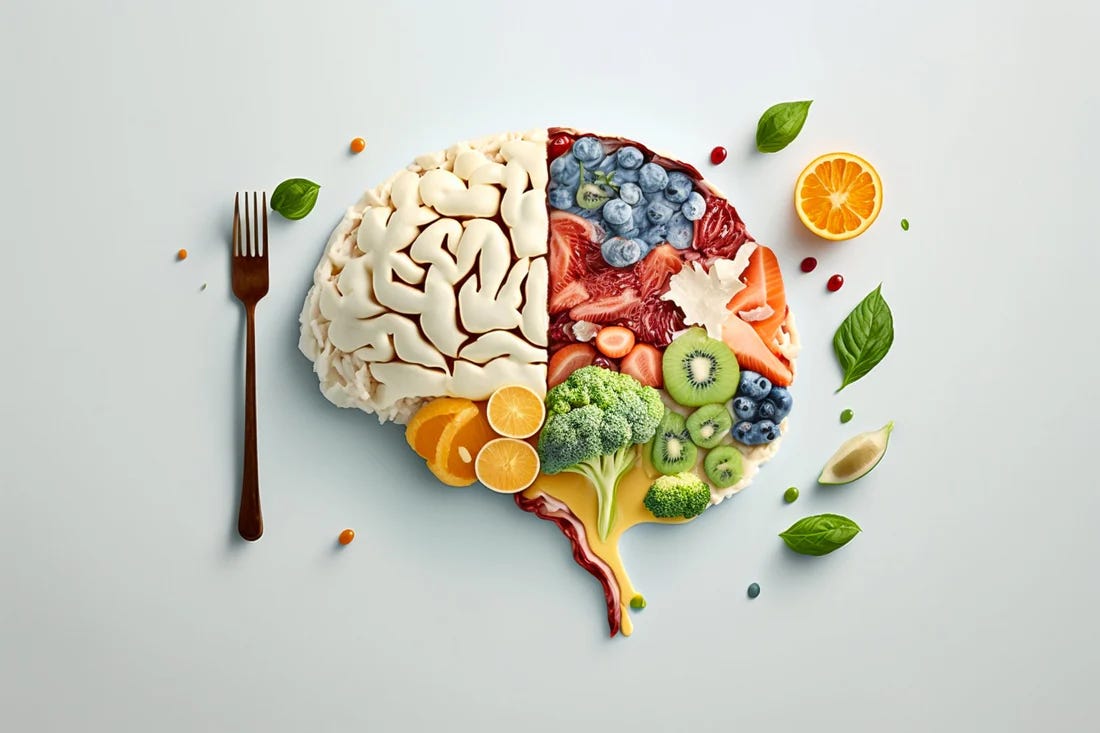The Gut, the Brain, and the Menu of Emotions
Don't believe that what you eat affects your mood? Here's the science, bite by bite.
If you're wondering what the queasy feeling after a rich dessert or the sharp rush of satisfaction after a hearty meal has to do with neuroscience, buckle up. We're about to dive into the buffet of your emotions and what they're eating for dinner and breakfast and lunch, too.
Imagine your brain and your gut as pen pals in a long-distance relationship. One writes long letters filled with emotional confessions; the other folds up recipes in return envelopes scribbled in shorthand. The nervous system, especially the famous vagus nerve, is their delivery service, zipping messages up and down the body. This gut-brain connection - equal parts science fiction and biology - is a busy thoroughfare that shapes our moods, energy, and decision-making.
At its core, the vagus nerve is like an unsung postal worker, carrying information about sugars, fats, amino acids, and more. When you sip that sweetened coffee, sensors in your stomach spring into action, detecting the sugar before your taste buds do. Signals fire down that nerve highway, triggering a dopamine release—a molecular nudge from your body that says, "Go ahead, take another sip!" It's reward and reinforcement whispered into your neurobiology before your brain even knows the script.
And let's talk about amino acids. Think of them as the raw materials your body uses to make neurotransmitters-the messengers of mood. Foods rich in l-tyrosine help stitch together dopamine, which sparks alertness and a rosy glow of motivation. On the other hand, serotonin-the "cozy sweater" of neurotransmitters-relies heavily on carbohydrates for its production. This may explain the magnetic pull of a bowl of pasta on a stressful evening, or the sluggish contentment that follows.
But moods aren't just brewed in the gut. Like any artist, the brain draws from multiple palettes. One surprising contributor is the gut microbiome—a community of trillions of microscopic parasites. These bacteria aren't altruists; they're survivalists, shaping your gut ecosystem to their liking. Some species play nice, aiding digestion and boosting mood by producing molecules like serotonin. Others stir up inflammation, fraying the delicate circuits between your gut and your brain like static on a bad phone line.
Supporting the good guys in your brain often means simple choices: fermented foods, less processed sugar, and the right balance of probiotics. It's less about drowning your microbiome in supplements and more about creating a consistent, healthy diet.
Even omega-3 fatty acids get their moment in this drama. These fats, famously found in fish, play a starring role in anti-inflammatory pathways and mental health. Studies show that they can lift spirits, especially for people struggling with depression, like a slow-building symphony for the mind.
Of course, everyone's gut-brain duo sings to a slightly different tune. Diets that leave one person sharp and energetic may leave another foggy. The individuality of this system speaks volumes about early development, genetics, and even the unseen influences of culture and lifestyle. It's as if each of us owns a symphony orchestra, tuned differently but bound together by universal principles of rhythm and resonance.
Ultimately, this relationship between what we eat and how we feel is a masterpiece of biology. But like all good stories, it's layered. At its simplest, it boils down to one truth: You are what you eat-not just in your body, but in your emotions as well. So the next time your gut grumbles for attention, listen carefully. It might just be your brain sending you a little thank-you note for your cooperation.


